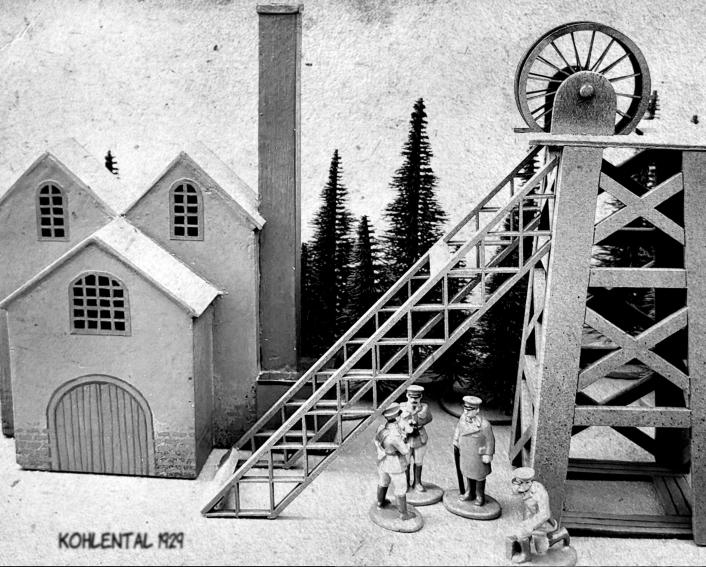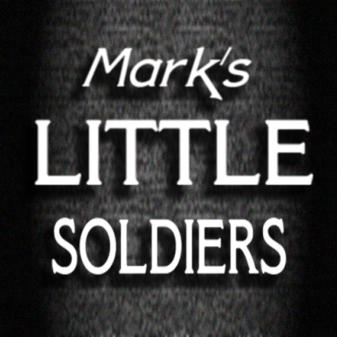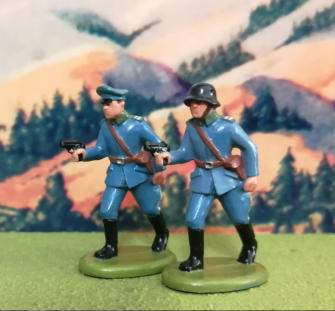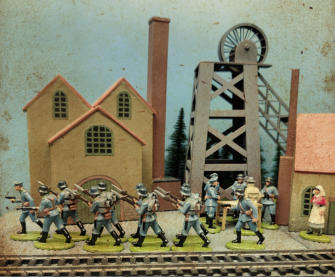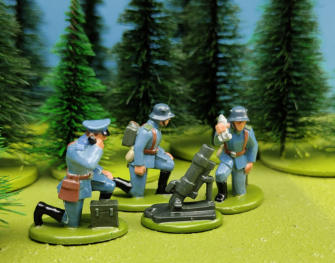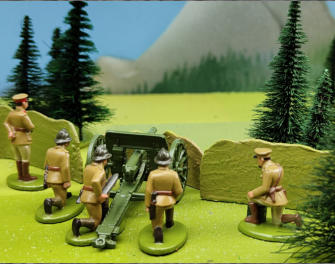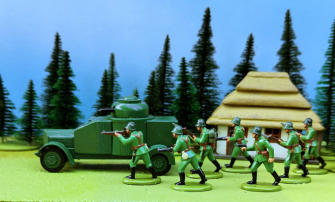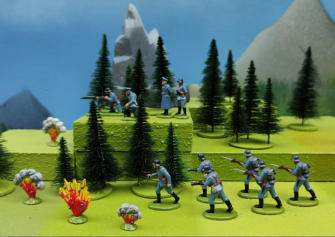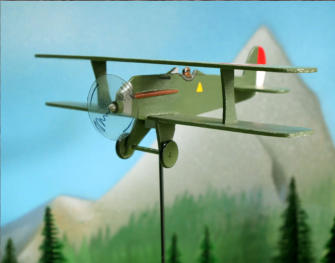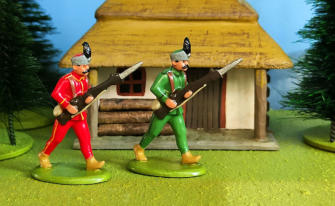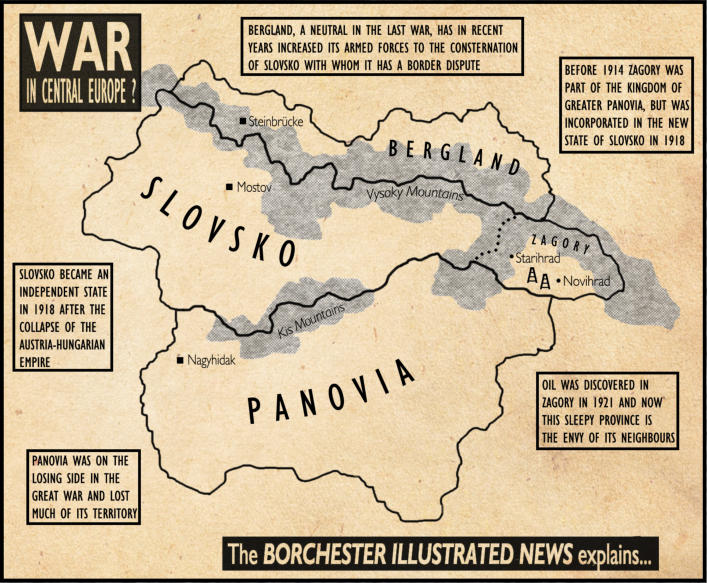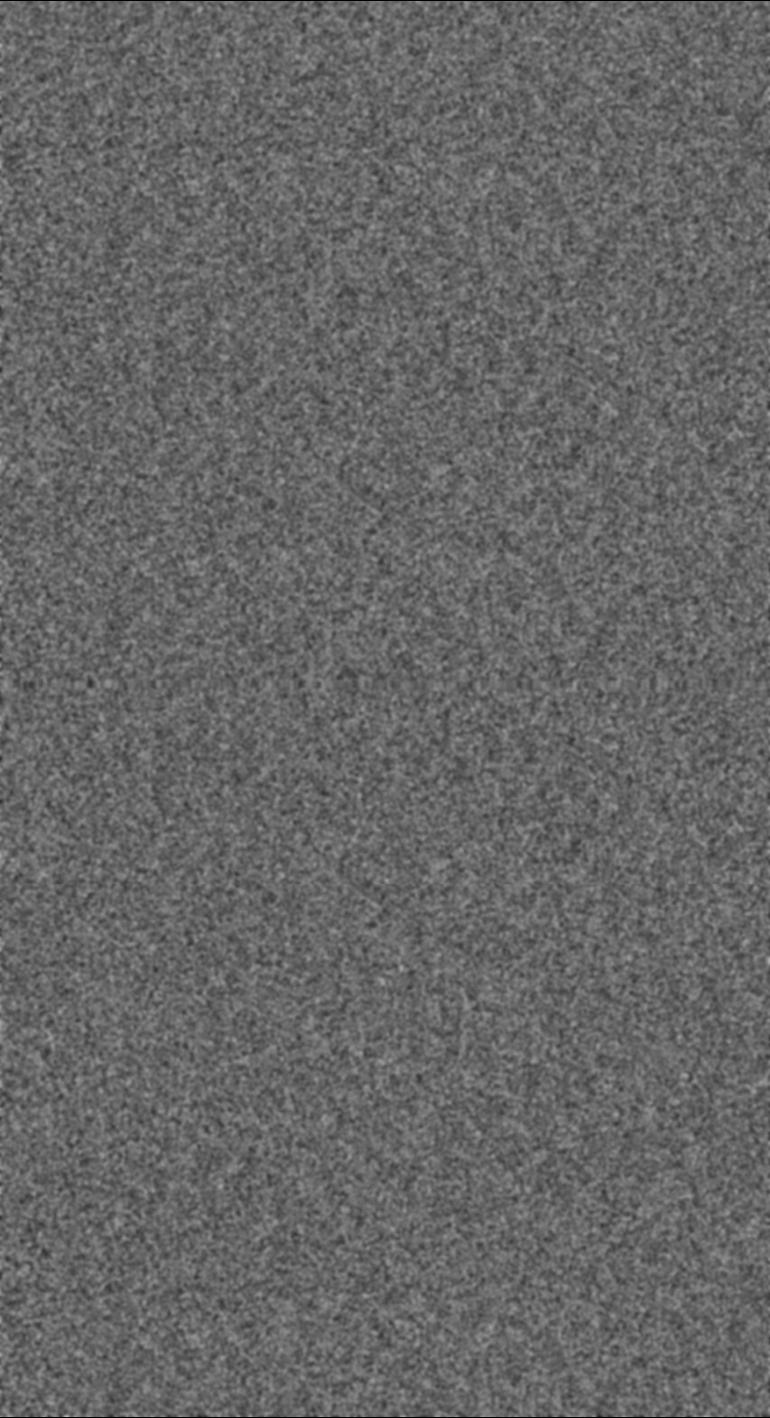
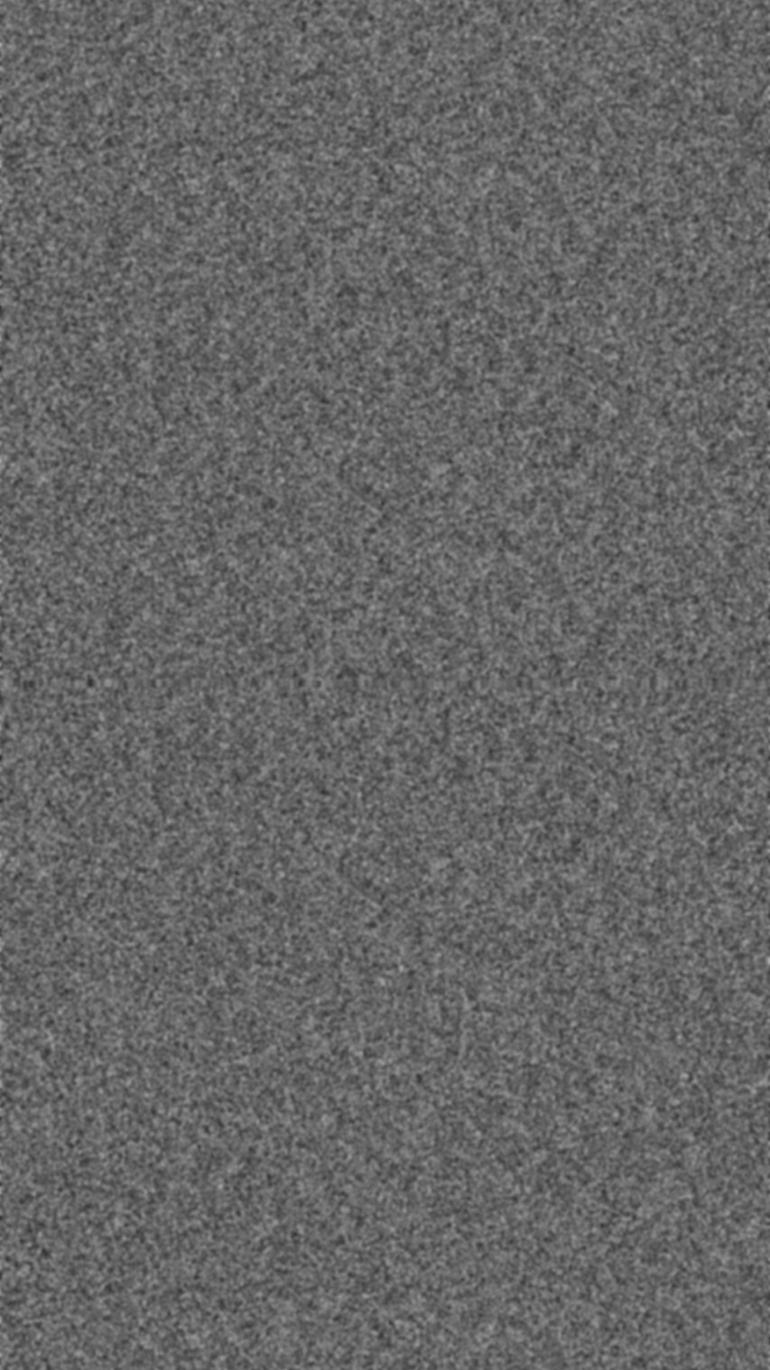



















A few years ago I realised realism just didn't
work for me. I've seen pictures of model
railway scenery that was so incredibly realistic
that it was literally indistinguishable from
photographs of the real thing. I've seen
fantastically realistic military models and
wargames where each stand was a miniature
diorama. I admire the skill involved, but really
it does nothing for me: there's no buzz of
excitement, no recognition of that moment
when my imagination button has been
pushed.
Do you remember those photo stories in
Jackie magazine back in the 70's? I know I
wasn't the target audience, but I thought that
from an aesthetic point of view they were
horrible, just flat and boring, and somehow
much less evocative than drawn strips.
Gradually, although I've carried on buying
military histories and books about uniforms
(curse you, Helion Books!), I've stopped
looking at the wargame mags and started
looking at pictures of vintage toy soldiers. For
some reason, to me they seem more
evocative of their period than most modern
miniatures. For the ancient and mediaeval
periods (and definitely for fantasy) it's different
but that's another story, for later perhaps.
At the same time I realised I didn't want to
recreate old wargames, although I can see
the appeal. Years ago I took part in a re-
enactment of an H.G. Wells "Little Wars"
game with some friends from the Class
Wargames group and Mike Owen of Artizan
Miniatures. We had old Britains toy soldiers,
matchstick-firing guns and wooden brick
buildings and a big, dusty parquet floor. It
was fun, but I wasn't converted. And the toy
soldiers were too big!
Eventually I realised I was suffering from
something I've come to call 'pseudo-
nostalgia'. I could see in my mind's eye
something that might have existed, but never
had. So began a strange quest: since the toy
soldiers I wanted didn't exist, I would have to
make them myself.
At an impressionable age, when my tastes
were still forming, Airfix 1/72nd figures
appeared and from those first boxes of pink
and red plastic guardsmen I was hooked. I
loved them and always called them "little
soldiers" as though it was a technical term. I
converted them using razor blades, hot pins
and Plasticene (though I never found any of
the mysterious banana oil that the Airfix
Magazine wrote about). I loved them then,
but I'm not remotely nostalgic about them
now. And then something happened in about
1965, when I was 10, that planted the seeds
of my current pseudo-nostalgia.
My Mom and Dad were asked to look after a
toy shop in Wednesbury in the West Midlands
for a week. The shop belonged to a couple
called Elsie and George, who we (that's me,
my brother and my sister) called Auntie and
Uncle, in the way people did then. The shop
was probably packed with all kinds of stuff -
cuddly toys, puppets, footballs, hula hoops
and mouth organs - but I can only remember
a few, and those I remember with crystal
clarity. It's only recently by Googling that I've
been able to identify them. In the front of the
shop there was a Louis Marx castle with gold
and silver knights that I really coveted, and a
display of Marx Disneykins. The stockroom,
though, was even more of a wonderland.
There were Britains' soldiers and guns, and
Dinky vehicles, but best of all were some
narrow, flattish boxes full of small painted
figures. For years I remembered the name of
the range because of its strangeness,
Swedish African Engineers. Even then I knew
there wasn't much connection between
Sweden and Africa, but I suppose a lot of
things seem inexplicable to 10-year olds.
Later the name got mixed up in my head with
my first military uniform book, Preben Kannik's
'Military Uniforms in Colour', probably because
of the vague Scandinavian connection.
Strangely I was too shy to ask for one of the
boxes, and it just became another memory,
jogged slightly when I saw SAE figures
mentioned in Donald Featherstone's 'War
Games'.
So time went on. Eventually I ended up
sculpting wargame figures in various scales
for various companies , including my own,
until I started feeling pseudo-nostalgic. I
realised that the answer was to make some
neo-retro toy soldiers so I started to work out
a recipe. First the basics: they had to be
around 30mm tall, be easy-to-paint, have
integral bases big enough to stop them falling
over and be soldiers from imaginary countries
from the 1920's and 30's. To get the flavour
right I wanted quite a lot of Tintin. a good
measure of interwar Hausser -Elastolin and a
pinch of Swedish African Engineers. That last
ingredient rather cuts across the others;
there's a skilful realism to Holger Ericksson's
sculpting that's a move away from the
stiffness of traditional toy soldiers, but still has
style and panache.
There's still a bit of a problem though: how do
you let people know that the simple style and
the limited poses of these figures are part of a
deliberate design, rather than just poor
sculpting? It's simple - no buttons and no
fingers. Surely nobody could think I just forgot
them or couldn't sculpt them if I wanted?
So that's where I am now. The first range of
my Little Soldiers is about to be released, but
the quest hasn't ended. When you aim for
verisimilitude the target, however hard it is to
hit, is clear. When you're making a neo-retro
range everything is a personal aesthetic
choice. How do you paint them? What kind of
terrain do you use? What should the buildings
look like? And how shiny should they be?

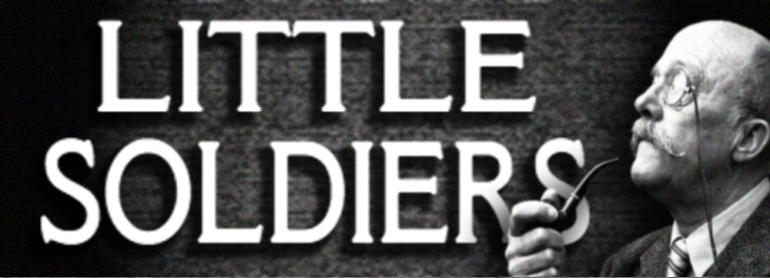
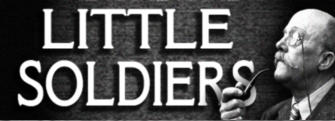
MARK’S LITTLE SOLDIERS
